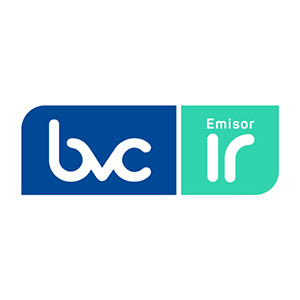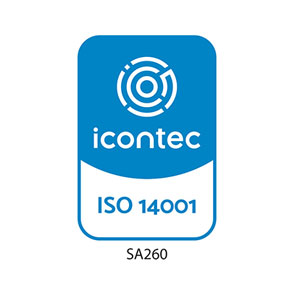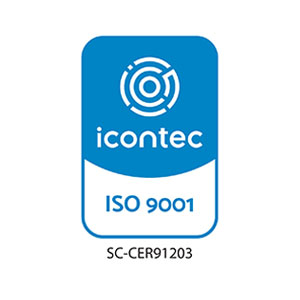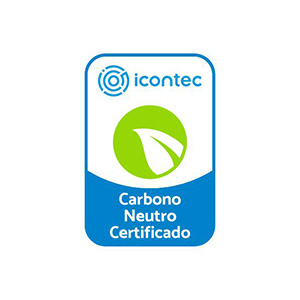At Celsia, we grow together. We develop the talent of our employees, fostering an environment of learning, innovation and mutual respect.
GRI (3-3) We are clear about the importance and weight of culture in business success. Our pillars and their behaviors are references when making decisions, creating services and generating new business, adding value for customers to turn them into fans. Celsia’s organizational culture is directly related to our strategy, a strong and possibilistic culture facilitates the design and implementation of successful strategies.
Through our pillars of culture:
We dare to be different.
We are quick and reliable.
We give our best to grow together.
We enjoy making life easier.
In 2023, we took on challenges in which culture, resilience and determination were factors in achievements and strengthening us as a company. The challenges of the global and national environment led us to assume a resilient posture and creative outlook to find paths to success and maintain the best level of talent support in Celsia. This way, we ensure the continuous development of key skills in employees to achieve organizational objectives, motivating growth and high individual and collective performance. Through corporate programs, we maintained a strategic focus on digital and human development needs to be prepared for the challenges of the future.
Our Management
- There are no positions, only roles.
- We remove the organization charts.
- We eliminate forms and office doors.
- We promote interdisciplinary work cells.
- We have close leaders and teams that learn.
- We simplify and automate processes to be quicker for our customers.
- We maintain continuous transformation.
GRI (404-1) We offer training programs that promote acquiring skills and help them improve the performance of their role and personal skills to 100% of our employees. This training is part of the E4 Academy, which is the coordinator of human capital development efforts.
Additionally, we continue to develop organizational capabilities that leverage our MEGA.
The Most Outstanding Programs
Organizational skills-Development Program
It has been one of the programs with the greatest impact on the development of new skills. It has motivated reskilling and upskilling for employees to leverage achieving the MEGA. Data management, simplification and the automation of processes, impact presentations, artificial intelligence and soft and self-skills are part of this system of capabilities in the organization, which are key at all levels in the company.
Taking Good Energy Fair
An interactive event that seeks to help employees to learn about the organization’s services and businesses, and how we provide added value to customers through them. The most recent version of the Taking Good Energy and Orange Day was held in person at 15 company headquarters and with access to remote connection for the other headquarters.
Training
Know the hours and amounts of training and development provided to our employees during 2023.
Development Programs
GRI (402-2)
Programs for Employee Skills Development
It seeks to develop soft and technical skills aligned with culture 2.0. The learning lines treated within the soft skills category are: innovation, creative thinking and continuous learning, through the UBITS learning platform. Within the category of technical skills are: productive time management, using Power BI, and automation with Power Apps and Automate, which are AI tools.
Benefits for the Business
We had four programs throughout the year, in which each participant developed technical skills with a digital, automation and artificial intelligence approach, as well as soft skills, such as: indicators development, continuous learning, proper time management and productivity.
The Quantitative Impact of Business Benefits
This program generated a positive impact on the organization due to the growth of employee performance evaluations in the cultural pillars:
As part of the results, we achieved an 87% improvement in the optimization of our employees’ work processes.
Leadership Development Program
This corporate leadership program works with two focuses. The first is the introductory focus, which addresses our leadership culture and the topics inherent to a leader’s management: Celsia leadership culture, cultural transformation, customer focus and YEC culture (Yo Elijo Cuidarme or “I Choose to Take Care of Myself”). The second is based on three dimensions within leadership according to the F.I.C methodology (flow, influence and converge).
Benefits for the Business
Aimed at leaders, who were in charge of disseminating and applying the knowledge, tools and experiences from the program in their work teams. It sought to provide management instruments to strengthen leadership capacity and thereby reach their maximum potential in executing their work, achieving harmony in teamwork, strengthening high-performance leadership and impacting work teams.
The Quantitative Impact of Business Benefits
With our leadership program, we generated a positive impact on the organization due to the growth of our employees’ performance ratings in the culture pillars:
Our employees rated the vision and purposefulness of their leaders at 90%.
Main Results
In 2023, we implemented development and training programs for all employees, continuing with a strong trend towards virtual programs.
Some achievements:
Within the framework of our capacity development program, we train more than 600 employees on topics of impact presentations, data management, simplification and automation, artificial intelligence, creativity and self-motivation.
We strengthened the talent development strategy by advancing the definition of the knowledge management model and promoting corporate skills within the framework of the E4 Academy.
We developed a space to transfer our learning to contractors through a virtual platform called Escuela Naranja.
We carried out 74,121 total hours of training (internal and external) – 26.8 hours for each employee.
On the leadership front, we implemented our leader development path as a modern, digital and higher impact program, in which they also train other leaders. In 2023, we focused on working on topics, such as introductory leadership, transformative conversations, leadership with purpose, female leadership, and young leadership, impacting more than 350 leaders.
With a methodology based on the Kirkpatrick Model, level 4, we quantitatively estimated the return on investment made in training programs. We evaluated learning, application and expected behavior, and compared everything to the cost of training activities.
Lessons Learned
GRI (3-3)
We strengthened our ability to identify new alternatives for taking advantage of internal knowledge that allow us to promote learning and achieve defined objectives with the available resources.
The relationship between higher education institutions and companies makes it easier for the research processes in universities to connect with the real needs of the business sector. Moreover, the knowledge companies generate and the progress in implementing new technologies, methodologies and trends in each sector facilitate relevance and opportunity in training of professionals for business and future job market needs. This is an opportunity to bring together the demand for labor of companies and the academic offer of universities, for innovation to be possible through cooperation.

Topic / Indicator | Own indicators | CSA S&P Indicator | SASB indicator | GRI indicator | TCFD | External assurance |
|---|---|---|---|---|---|---|
Training – Total hours | – | 3.3.1 | – | 404-1 | – | |
Training – Investment | – | 3.3.1, 3.3.3 | – | – | – |
The ANDI and its Foundation, in partnership with Usaid and Portafolio, granted us recognition as one of the 21 inspiring companies of 2023 for our Energy in Development program, whose objective is to train women technologists in industrial electricity, in conjunction with the SENA.
This list identifies and recognizes the most successful organizations in Colombia that have understood that the private sector is capable of generating great transformations in society through business initiatives that improve the competitiveness of businesses. They do this by generating positive social impact and including vulnerable populations in their value chain.
Kirkpatrick model: A training or indicator measurement model that consists of four levels: level 1 (reaction), level 2 (learning), level 3 (behavior), level 4 (results).
E4 Academy: The energy school of the Educa model. It is also our corporate university, from which we support and develop all training initiatives, through adequate knowledge management.
MEGA: The large and ambitious goal that provides strategic guidelines to the organization.








